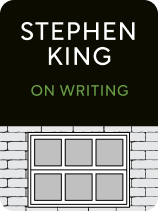

This article is an excerpt from the Shortform summary of "On Writing" by Stephen King. Shortform has the world's best summaries of books you should be reading.
Like this article? Sign up for a free trial here .
What are the writing fundamentals that you need to know? How can you apply these fundamentals to your work?
In his memoir On Writing, Stephen King explains the writing fundamentals that will help you become a strong and consistent writer.
Keep reading to learn about writing fundamentals and how to apply them to your work.
Writing Fundamentals
Improving as a writer requires hard work. There are no shortcuts. You need to read a lot and write a lot. A good sign of whether you’ll make it as a writer is whether you enjoy reading and writing for their own sake. You can start by learning writing fundamentals.
Talent and Hard Work
One sign of talent is enjoying the hard work. What seems like labor to other people is pleasure for you, including writing fundamentals.
Stephen King reads 80 books a year, despite professing to be a slow reader. He doesn’t read to learn, he reads because he likes reading. And when he writes (2,000 words a day), it typically feels like playtime to him—it’s the rest of life, with the errands and the bills and the “relaxing” that feels like work to him.
If you don’t enjoy reading and writing, then you won’t become a good writer. But “if you can do it for joy, you can do it forever.”
Read a Lot
To be a good writer, you need to recognize what good and bad writing is. Reading exposes you to good and bad writing. The more you read, the more you learn. Stephen King always carries a book with him so he can read whether he’s waiting at the grocery or sitting front-row at a Red Sox game. This is how you learn the fundamentals of writing.
Often the bad writing is more instructive than the good writing. It teaches you what not to do—what’s cliche, how characters act unrealistically, how writers ruin the pacing with plodding description. It could even be inspirational—if you think a bestseller is terribly written, then you might start thinking you could easily do better.
Through thousands of hours of reading, you sharpen the tools in your toolkit. You absorb other people’s writing rhythm, how they develop their characters and plot, and how they wield language. You take what you like and forge your own style.
Write a Lot
Writing a lot is one of the fundamentals of writing. cKing is famously prolific: He writes ten pages a day, or 2,000 words. Every three months he produces about 900 pages, a good-sized novel. He dedicates his morning to writing time, and he doesn’t move on with the rest of his day until he finishes his writing goal.
If you’re a new writer, here’s how to get started:
- Set a habit: define your writing location and carve out a daily time when you’ll be writing.
- During that time, shut your door and remove all distractions. You should get lost in your own world.
- Set your daily goal low and achievable. He suggests 1,000 words a day. Until you meet this goal each day, your door stays shut.
- Take no more than one day off a week. Keep up the momentum when writing to prevent the self-doubt from creeping in.
What to Write About
You can write about anything. The only requirement is that you tell the truth. This is one of the most basic writing fundamentals.
One of the fundamentals of writing is that good writing pulls readers in by telling the truth. The characters seem real and behave in recognizable ways; the reader sees herself and her beliefs embedded in the story. In contrast, you likely stop reading a book when you can’t identify with any of the characters and find them implausible.
You’ll probably start by writing in the genres you like to read—if you’re a science fiction fan, you’ll write science fiction. You might even emulate the style of writers you like, which is nearly unavoidable for novice writers until they develop their own voices.
What you shouldn’t do is write what you think other people will like—friends, colleagues, critics, book buyers. Don’t try to emulate the form, plot and style of bestselling authors. All this takes you away from authenticity, and your readers will know.
So write what you know and like, and bring your truths into the story. You know some unique truths about the world, which will make your writing unique, and don’t forget your writing fundamentals.

———End of Preview———
Like what you just read? Read the rest of the world's best summary of Stephen King's "On Writing" at Shortform .
Here's what you'll find in our full On Writing summary :
- Stephen King's personal writing habits that led to superstar books like Misery and It
- How to make a story and characters feel real
- Why you should never use adverbs






